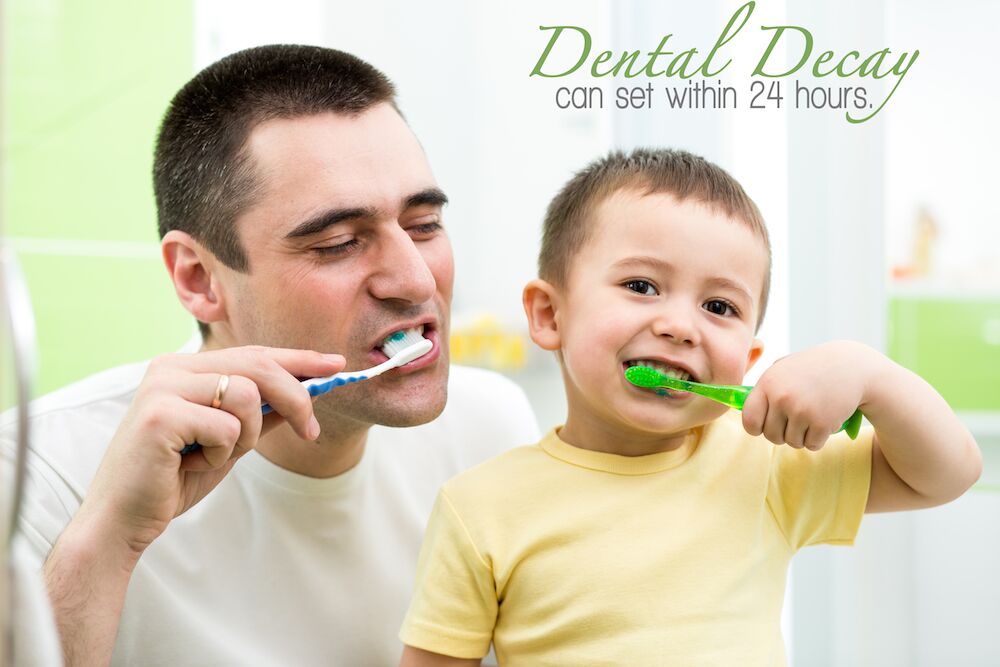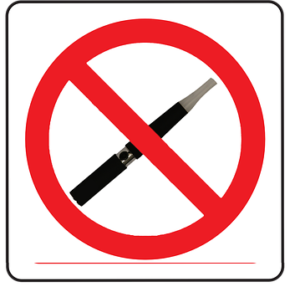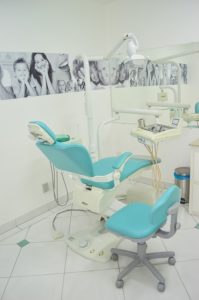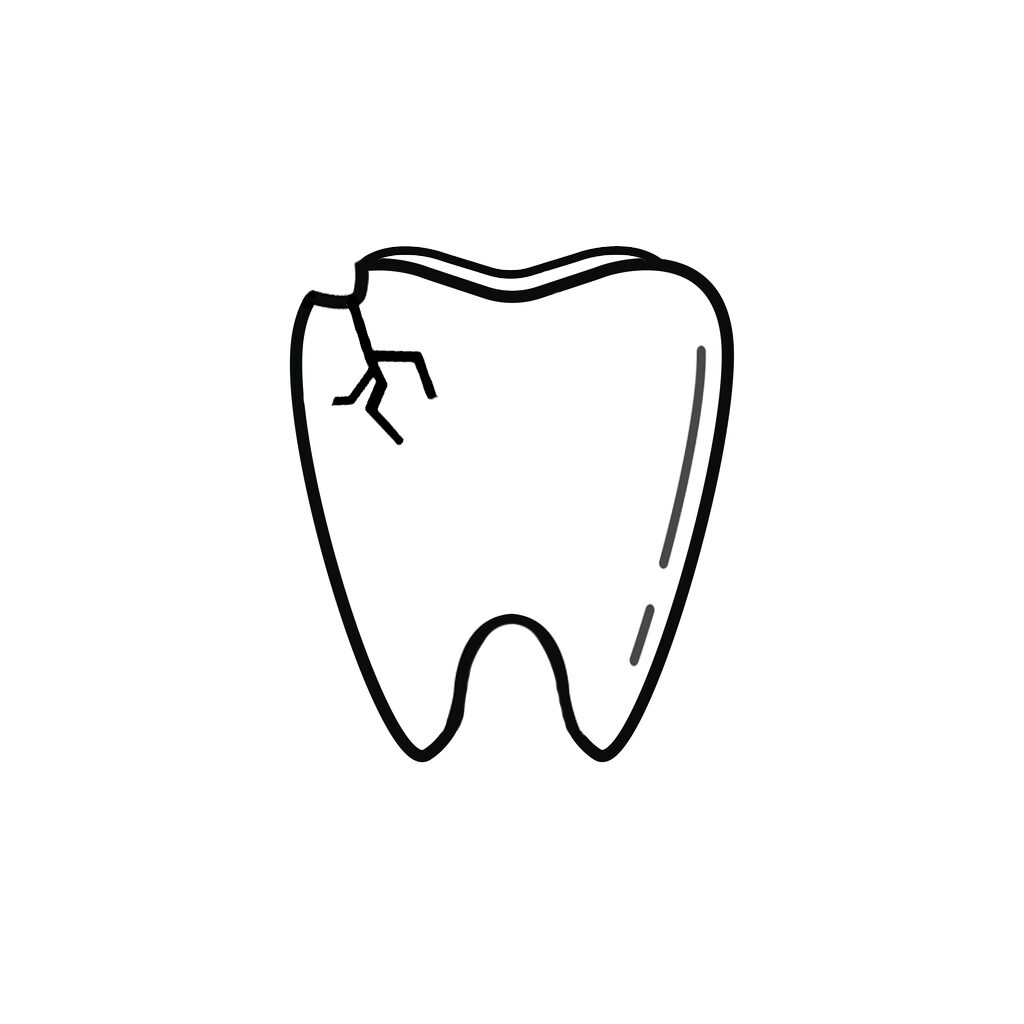Tag: Dentist in 60172
Cracked Teeth and How to Avoid Them | Dentist in Roselle IL
A cracked tooth can affect the appearance of your smile and hinder the function of your teeth. Depending on the severity, you may experience discomfort or find it difficult to chew comfortably. Thankfully, damage to your teeth can be avoided by knowing what causes it. Below our dentist in 60172 has gathered the most common reasons for a tooth to crack and how to avoid it from happening.
Chewing Hard Foods
While healthy teeth are strong, they are not indestructible. Try to avoid or limit chewing on hard foods such as nuts, ice, or popcorn kernels, as these can cause cracks in your teeth.
Grinding Your Teeth at Night
Teeth grinding (known as bruxism) is a common occurrence and can happen without your knowledge. Most teeth grinding happens in your sleep and can gradually damage your enamel, causing stress fractures or what are known as craze lines. Combat this issue by wearing a night guard, which acts as a barrier between your upper and lower teeth and protects them from wear.
Natural Aging
As you age, so do your teeth. While you can’t avoid aging, you can help limit the effects it has on your oral health. Cracked teeth are commonly found in people over the age of 50 due to a lifetime of daily use. Because of this, it is important to practice strong oral hygiene habits and visit the dentist on a regular basis.
Trauma to the Mouth
Traumatic dental injuries can occur during vehicle or sport collisions. Often, these accidents are unavoidable and can cause damage to your teeth. While playing contact sports, we encourage you to wear a mouth guard to lower your chances of cracking a tooth.
Cracked teeth, especially when left untreated, are one of the leading causes of tooth loss. There are ways to avoid these injuries that will help keep your teeth strong and safe. Sometimes, a cracked or chipped tooth is unavoidable. In this case, our team can help restore your teeth back to full health.
For more information or to schedule your next appointment, contact our Roselle, IL dental office today.
5 Mistakes You Might Be Making While You Brush | 60172 Dentist
Brushing your teeth can feel like a no-brainer after decades of practice, but are you aware of the mistakes surrounding home care that you might be making? Keep your oral health top-notch by reading our quick list shared by our dentist in 60172 and see how you fare.
- Timing – Make sure you don’t brush immediately after consuming sugary or acidic drinks. You can demineralize the enamel on your teeth by doing this. Rinse your mouth with water, then wait for 30 minutes to an hour before you brush.
- Borrowing a Brush – Sharing is caring, but not when it comes to toothbrushes. When you share toothbrushes with somebody, you can spread illness and germs through oral contact. Make sure to get your own toothbrush, and label it or keep it separate to ensure you don’t get them confused.
- Distance from the Toilet – Flushing a toilet can spread bacteria through the air. Make sure to place your toothbrush as far as possible from your toilet, or put a cover on your brush to protect it from contamination.
- Rinsing after Brushing – Most toothpastes contain fluoride, which can help strengthen the enamel in your teeth. It takes time to work, however, so make sure you don’t rinse your mouth right away after brushing. This can wash away the fluoride before it can do its job.
- Brushing Too Much – When you brush too frequently, you run the risk of wearing down the enamel on your teeth. Focus on brushing all facets of your teeth instead of how vigorously you can brush.
There is more to brushing your teeth than you might think. These tips can help keep you aware of mistakes you might be making. Remember, daily brushing and flossing are only the foundation for optimal oral health – professional dental care is important, as well. For more advice or to schedule your next visit, contact our dental office in Roselle, IL.
How to Keep a Healthy Tongue | Cosmetic Dentist in Roselle, IL

When it comes to oral health, protecting your teeth and gums are often the focus. However, did you know that your tongue needs proper care as well? Your tongue is responsible for many essential functions like swallowing, tasting, and talking, but it can harbor bacteria that harms your oral health. Learn how to keep your tongue healthy by following these four treatment tips that our dentist office in Roselle, IL put together.
Practice Optimal Oral Hygiene
Brushing and flossing twice a day will protect your mouth from pesky bacteria, but make sure to brush your tongue as well. As an alternative, try using a tongue scraper once a day. Tongue scrapers will scrape away any build up that has formed on your tongue.
Drink Plenty of Water
If you are dehydrated, it’s possible for your tongue to lose moisture and become uncomfortable. Drinking water ensures your hydration and will wash away food particles and bacteria from the surface of your tongue. Proper hydration can also prevent bad breath.
Maintain a Healthy Diet
Your tongue is a muscle, and what you eat can affect its health. Fill your diet with foods that are rich in vitamins and minerals, calcium, lean protein, and fiber. Avoid eating processed foods and treats that are filled with sugar.
Visit our Dental Office
By visiting our dentist at Westlake Dental Care of Roselle in 60172 at least twice a year for a routine cleaning and examination, you can protect your tongue, teeth, and the rest of your mouth. During these visits, we will thoroughly check all aspects of your oral health. We will then work with you to create an oral health plan that is tailored to your needs.
Don’t let your oral health slip by neglecting proper care for your tongue! Put these four tips into practice so you can enjoy a bright and healthy smile. Contact our dental office in 60172 today to learn more about proper oral care or to schedule your next appointment.
Sports Drinks and Energy Drinks | Cosmetic Dentist in 60172

Many sports drinks contain electrolytes which can be helpful to maintain energy levels when engaging in physical activities. You may believe that sports drinks are healthy but the truth of the matter is, they are not healthy. Energy drinks are those like Monster and Rockstar. Sports drinks and energy drinks are also seen as a tasty alternative to water when it comes to staying hydrated. It is important to know the negative effects and damage that these drinks do to your teeth. Always remember to make your appointment with our dental office in Roselle, IL for your routine cleaning and exam.
Up to 62 percent of children of the same age drink at least one sports drink per day and between 30 and 50 percent of teenagers in the United States drink these types of beverages regularly. With these numbers being so high it is important to take notice on the negative effects these drinks can have on teeth. The danger to both children and adults in sports drinks and energy drinks comes not only from the sugar content but also from the acidity. These types of drinks contain a significant amount of acid that they begin destroying the teeth of the person drinking them in as little as five days.
There is a lot of damage being done to your oral health when consuming sports drinks and energy drinks. Energy and sports drinks can damage tooth enamel, increasing the risk of cavities and tooth decay. These drinks erodes or thin out the enamel of the teeth, leaving them more susceptible to decay and sensitivity. Athletes drink these beverages to remain hydrated and sip them frequently during exercise. This increases the time that teeth are exposed to the acidity and high sugar content of sports drinks, leaving them vulnerable to decay.
While sports drinks and energy drinks can be an alternative to water, there are ways to promote great oral health. The best way to promote oral health is to keep yourself hydrated with water to prevent negative effects that sports and energy drinks bring. If you feel that you must use sports drinks, rinse your mouth with water afterwards and do not brush your teeth right after you have consumed a sports drink. Also, read the ingredient labels before you consume drinks. Avoid high amounts of acid and sugar, especially if you already have teeth problems.
Getting healthy is great for your body and your mouth, but sports and energy drinks are not a necessary part of well-being. There are many alternatives, it’s just a matter of finding what works best for you. One must maintain oral health to make sure to have a lasting smile. Talk to our dentist in 60172 about preventative care for your oral health.
I Chipped a Tooth! What Can I Do? | Roselle IL Cosmetic Dentist
It usually starts pretty innocently. You’re biting into your favorite hard candy and suddenly you realize that there’s one little hard piece in your mouth you can’t seem to dissolve. You check it out and fear overcomes you when you see it’s a little chipped piece of a tooth.
Enamel may be one of the hardest substances in the body but like most things in life, it has its limit. Whether you are chewing on ice or grinding your teeth at night, there’s always a chance of putting your teeth at risk. If you have chipped your tooth, there’s no need to panic. Here are a few things our dentist in 60172 can do to restore your beautiful smile:
Tooth Bonding
Tooth bonding has many structural uses, and it can be very helpful for repairing chipped teeth. Tooth bonding is a simple procedure that doesn’t require any numbing. The bonding materials and porcelain used are natural in color and can be designed to perfectly match your teeth. Your smile will look good as new, and people will have a hard time noticing you ever chipped a tooth to begin with.
Dental Crown
A dental crown is a tooth-shaped cap that helps protect your teeth, while at the same time improving its appearance. An AACD (American Academy of Cosmetic Dentistry) dentist will likely use a tooth colored crown made out of porcelain or zirconia to look identical to your teeth. Crowns will also provide the durability and strength your teeth need to withstand daily use. You may only need a partial crown if our dentist sees that the chip doesn’t affect the entire tooth.
Porcelain Veneers
Porcelain laminate veneers are made up of several thin layers of ceramic used to repair chipped teeth. They will be bonded to the teeth to replace the original enamel of the tooth with a special adhesive. Dental veneers are a fantastic way to get your tooth to look whole and healthy again.
If you have a chipped tooth and would like more information on these methods, or to schedule a consultation, contact our dental office in Roselle, IL today.
Roselle IL Dentist | Plaque: Your Teeth’s Number One Enemy
When buying a toothbrush, toothpaste, or coming in to our office, you often hear the word “plaque” associated with the health of your teeth. Plaque is one of the main reasons why it is so important to keep up with a daily oral hygiene routine that includes brushing two times each day for at least two minutes, and flossing regularly as well. Here’s what you need to know about plaque and what it can do to your smile.

What is Plaque?
If you haven’t brushed your teeth in a while, you might feel a film-like, sticky buildup on your teeth. This is plaque, a bacteria layer that grips onto your teeth. There isn’t anything you can do to stop plaque from forming, but brushing and flossing as well as keeping up with regular dental visits are your best defenses for cleaning plaque off your teeth.
What Plaque Does to Your Teeth & Mouth
Without regular brushing and cleaning, plaque builds up and multiplies. As plaque is left untreated, it hardens to form tartar (also known as calculus). Plaque also leads to decay, as it produces an acid that damages your teeth. When you come into our office for a dental examination, we thoroughly clean your teeth to ensure that any buildup is taken care of. Tartar can cause staining on your teeth if left untreated. Plaque is the leading cause of gingivitis, causing your gums to swell and become red or bloody.
What You Can Do
The most important steps of keeping plaque in check is to stick to a daily brushing routine. This means brushing twice each day, for two minutes each time, and flossing at least once daily. Plaque occurs naturally, and when you come into our office for a complete examination, we work with you to clean off any buildup. Maintaining regular visits to our office is one way to ensure tartar buildup is minimized and managed. It is particularly important that you are brushing your teeth all the way to the gum, because the gum line is an area that is prone to plaque buildup. Brush gently, as vigorous brushing will only do more damage than good, especially to your gums.
Sticking to your daily brushing and flossing routine will help keep your teeth free of plaque buildup. Make sure you are brushing in the morning and before bed. If you don’t brush before bed, bacteria and plaque will build up throughout the night. Schedule a visit to our office so our experienced, professional dental team can clean your teeth, giving you a smile you can be proud of.
For more tips from our Roselle family dentist on keeping your teeth healthy or to schedule your next visit, please contact Westlake Dental Care of Roselle.
Roselle IL Dentist | Tooth Decay – Something You Need to Know About
Painful, infected teeth are not a pleasant experience, but they are common symptoms of tooth decay. The good news however is that tooth decay is preventable. Your best defense against decay is a daily oral hygiene routine, as well as regular visits to our office. It can be helpful to know more about tooth decay and what causes it so that you are better equipped with the knowledge to prevent it.

More Than Just Sugar
Sugar is a leading cause of tooth decay. Sugar build-up and deposits on your teeth lead to the erosion of the tooth. While it is important to be mindful of the sugary products you are consuming, sugar is not the only culprit in causing tooth decay. Acids can also damage your teeth. Foods that are high in acidic content can speed up the process of decay. Our dentist suggests you avoid drinks and candies with high sugar or acid content. If you find yourself consuming such things, make sure to keep up with your daily oral hygiene routine.
The National Institute of Dental and Craniofacial Research recommends avoiding snacks between meals, limiting sugary drinks and fruit juices, and not eating or drinking before bedtime after brushing.
You Can’t Always Tell
Decay doesn’t always have noticeable signs. When discomfort is felt, it could be a sign the decay has spread beyond one tooth. In other words, by the time you do feel it decay is far along. This can be prevented by regular visits to our office. Our doctor can help identify potential issues early and you will receive the best possible treatments for your teeth.
Teeth with Fillings Still Need to Be Cared for Properly
Previous fillings do not mean that your teeth are free of decay forever. It is essential you maintain proper daily care of your teeth. It is possible to develop decay around existing fillings, so be sure you are taking extra care especially around fillings. If you feel your existing fillings are giving you trouble, schedule an appointment to see us.
Tooth Decay Not Just a Kids Thing
All age groups are equally at risk of developing tooth decay. Parents should keep an eye on their children’s sugary snacks and treats, but this advice holds true for everyone. Senior citizens are particularly vulnerable because of certain medications can damage their teeth. It is essential that all age groups are receiving twice-yearly dental examinations.
Tooth decay is a common dental issue. However, with the right knowledge you can prevent damage to your teeth. Watch your diet and make sure you limit sugary candies and snacks. Remember, you won’t always be able to see or feel decay, so contact our Roselle dentist to schedule a regular visit.
For more helpful tips on preventing decay, or to schedule an appointment, contact Westlake Dental Care of Roselle.
Roselle IL Dentist | The One Piece of Gear Every Athlete Needs

An injury to your mouth can be a painful, expensive experience. For athletes, mouth and tooth injuries are a very real risk. Mouthguards are an excellent tool for protecting your mouth from injury and harm. Our team can help you find a solution that protects your teeth while you play.
Why Wear a Mouthguard?
Mouthguards protect your teeth. For athletes, injuries to the mouth can cause cracked teeth, or even worse, missing teeth. Additionally, your mouth is mostly made up of soft tissues, such as your tongue, inside cheeks, and lips. These areas can become injured or pierced when playing sports. Mouthguards help defend your mouth and teeth against such injuries.
Do All Athletes Need a Mouthguard?
Yes. High-contact sports such as hockey, wrestling, football, and boxing pose the greatest risk for mouth injuries. However, all athletes can benefit from being cautious. Gymnasts should consider wearing one to protect their mouth in the event of a fall. Baseball and basketball players should protect themselves from being injured by a ball or collision with another player. Mouthguards should be treated as a necessary piece of your athletic gear, no matter which sport you play.
Which Mouthguard Is the Most Effective?
Our team can help you during your next visit to our office. There are many options available, ranging from store-bought to custom-fitted mouthguards. We will work with you to determine which type of mouthguard is best for you. It is important that any guard fits properly.
If you are currently receiving orthodontic treatment, we may recommend a special type of mouthguard. Braces can puncture your mouth if impacted, particularly during sports. Our Roselle dentist will help you find a solution that works.
Prevention is the best solution to oral sports injuries. Contact Westlake Dental Care of Roselle and ask about finding a mouthguard that is right for you.
Roselle Dentist | What to Know About E-Cigarettes and Your Oral Health
Dentist Near Me
 The hazards surrounding vaping are not entirely clear. More research is needed in this area, but a recent study indicates that e-cigarette vapors could be damaging to your mouth. Here’s what you need to know.
The hazards surrounding vaping are not entirely clear. More research is needed in this area, but a recent study indicates that e-cigarette vapors could be damaging to your mouth. Here’s what you need to know.
The Vapor Ingredients
Electronic cigarettes are not regulated in the same way tobacco cigarettes are, meaning that their contents can be inaccurately labeled without any oversight. Contents that e-juice usually contains include nicotine, glycerin, chemical flavoring, and propylene glycol. Some of these substances are safe in food, such as chemical flavors, but the effects of inhaling them is not well researched. Heating these chemicals can form dangerous carcinogens such as formaldehyde. E-cigarettes might also include tiny metals and particles that you inhale while smoking.
What This Means for Your Oral Health
A recent study from UCLA found that vapors from an e-cigarette can kill the cells in your oral cavity, or the area of your mouth beyond your teeth and gums. The study placed oral cells in an environment where electronic cigarette smoke was produced for 24 hours, in a machine simulating how a person would smoke. During the test, 85% of the cells died. According to the lead author of the study, they plan to move forward to test the impacts in humans.
These cells are your mouth’s defense by helping to release antioxidants. As the cells die off or become less effective, your mouth becomes more vulnerable to oral diseases.
Another study by the University of Rochester Medical Center concluded e-cigarettes are just as bad for your gums as tobacco cigarettes are. Nicotine, which both types of cigarettes contain, is a known factor in contributing to gum disease.
Steps You Can Take
Since the e-juice industry is largely unregulated, it is best to avoid smoking electronic cigarettes. The carcinogenic contents pose serious risks to your health, especially to your mouth. Your mouth relies on the functions of these important cells to defend itself against dangerous bacteria and other substances. Without your mouth’s natural defense system, you open yourself up to oral disease.
Make sure you are regularly visiting our office, especially if you are a smoker of either tobacco cigarettes, or electronic cigarettes. Our experienced dental team will perform a complete oral examination during your visit to check for signs of oral disease. Being proactive is your best defense against combating oral disease.
For more tips on keeping your mouth healthy or to schedule your next visit, please contact us.
1260 W Lake St
Roselle IL 60172
(630) 980-6762
60172 Dentist | Understanding Periodontal Disease
Dentist Near Me
 Maintaining your gum health is vital to your overall health. When you visit our office for an examination, our trained hygienists perform a periodontal exam. In fact, during your examination, our team is quietly assessing your oral health by performing a number of checks. Here’s what you need to know about periodontal disease.
Maintaining your gum health is vital to your overall health. When you visit our office for an examination, our trained hygienists perform a periodontal exam. In fact, during your examination, our team is quietly assessing your oral health by performing a number of checks. Here’s what you need to know about periodontal disease.
Many Names, One Illness
You may have heard periodontal disease referred to as gum disease or gingivitis. Periodontal disease is the inflammation and infection of your gums. These names are frequently used interchangeably.
Signs & Symptoms
Periodontal disease may be marked by swollen and red gums. Bleeding, especially while brushing and flossing, may also occur. Another symptom of periodontal disease is persistent bad breath. If you experience any of these symptoms regularly, please contact our office.
Periodontal Disease Can Impact Your Overall Health
Your gum health is linked to your overall health. If left untreated, periodontal disease can lead to bleeding gums, gum recession, and tooth loss. The effects of periodontal disease extend well beyond your mouth. In fact, according to the American Academy of Periodontology, the disease can increase your risk of developing heart disease, diabetes, and stroke.
While you may think of your teeth as the primary reason to visit our office for a regular examination, understand that our team is looking beyond your teeth to assess your oral health and potential impacts on your overall health. Talk to our experienced team if you experience any signs or symptoms of periodontal disease. Our team is trained to identify signs of periodontal disease. When detected early and managed properly, periodontal disease is treatable.
For more information regarding your gum health, please contact our office, or schedule a visit to see us.
Address: 1260 W Lake St, Roselle IL 60172
Phone: (630) 980-6762




